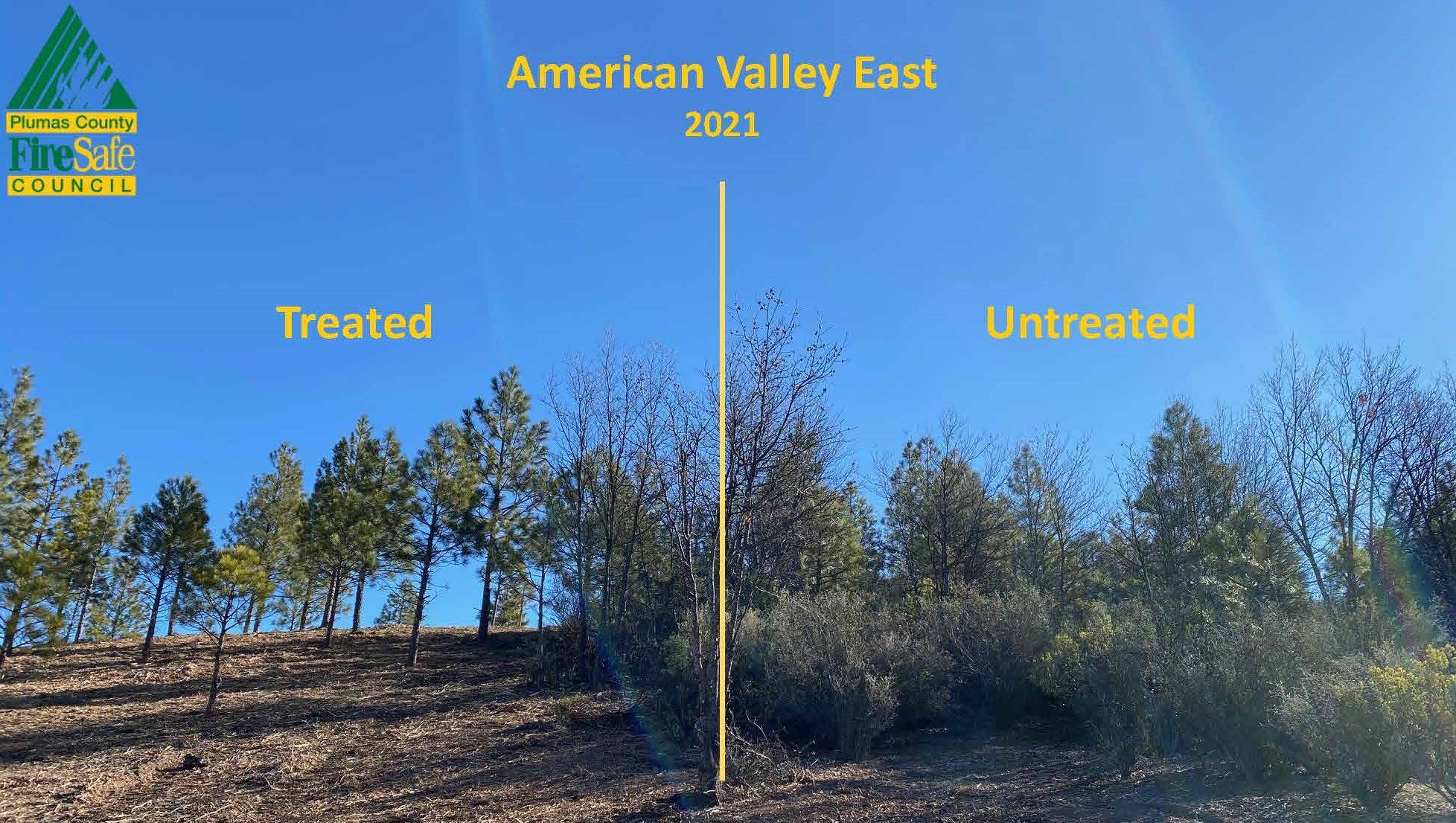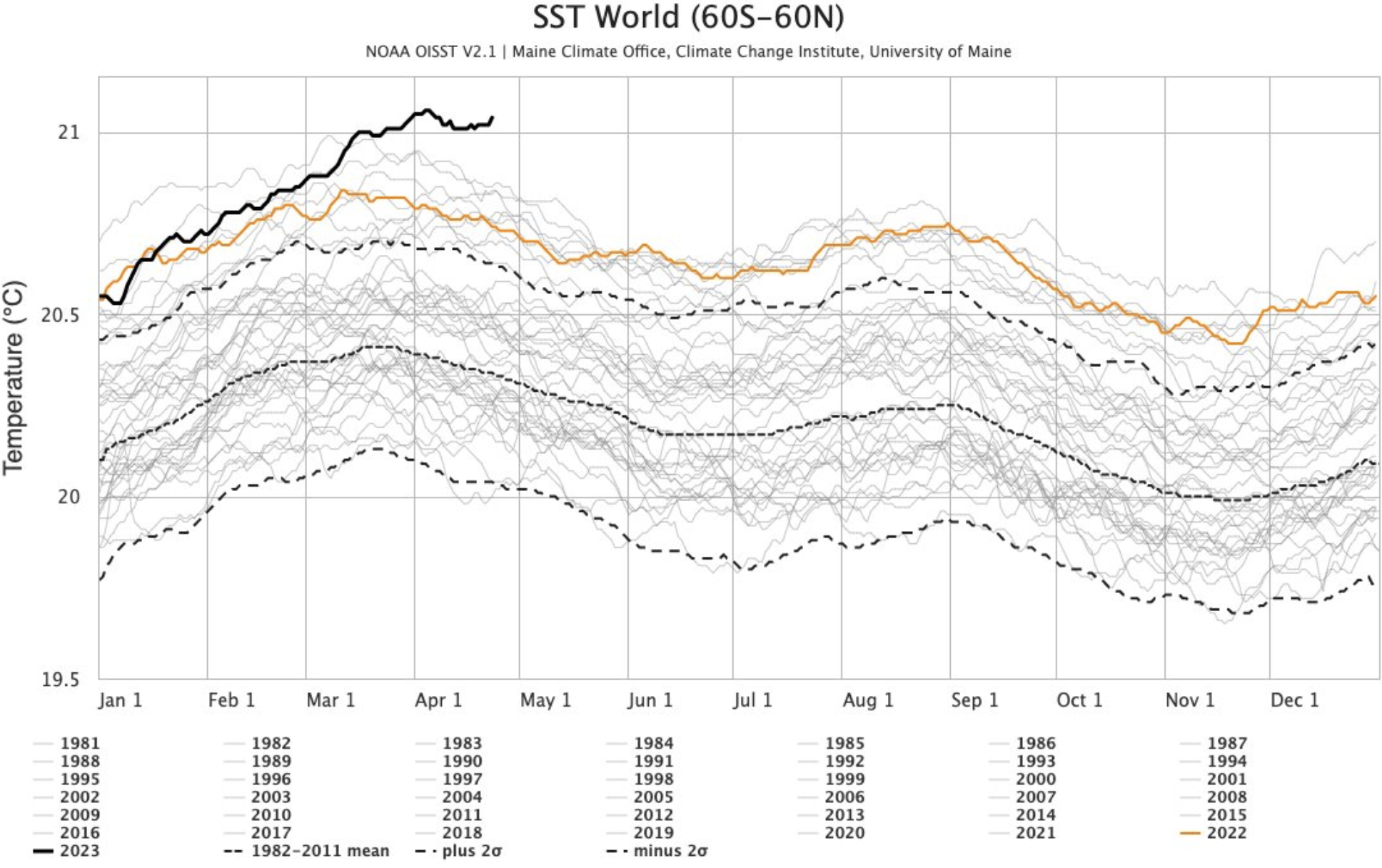Scientists are watching with alarm as ocean temperatures go off the charts this year (see black line above). Oceans are huge repositories of energy and heat, and due to human emissions of greenhouse gases, are absorbing the equivalent of more than 7 Hiroshima sized nuclear bombs every second.
Up to now the oceans have been quite effective at absorbing the sun’s energy being trapped by human effluent, but that is starting to change. Without the oceans to absorb all the heat, the Earth would already be a Venus-like hell-scape, given the amount of pollution humans (and particularly rich humans and large corporations) have already belched out into our eggshell thin atmosphere.
Normally in April, temps will start to decrease but this is not happening this year. This could indicate a temporary condition that will return to something like normal, or something far more serious, threatening global climate disruption on an unprecedented scale. Temperatures in Europe and Asia are already shattering records in April. Current predictions are for a strong El Niño developing over the summer which could make the precipitation we saw this last winter look like a drizzle. Check out Daniel Swain’s Weather West website for a thorough analysis of the science here.
Unfortunately most of the carbon reduction actions humans are taking are not appropriate for the scale of the problem, or are making the problem far worse, such as carbon offsets, widespread adoption of electric cars, forest “thinning” (aka logging), etc. etc.
This is an emergency, and an existential threat to human survival and we need to start acting like it. The truth is that our culture is sick and operating based on assumptions that are outdated and dangerous to our survival.
A great discussion of what real solutions would look like if we are serious about addressing the climate crisis can be found here.
The truth, however inconvenient to our lives, is that there is not enough space in the atmosphere for aviation and personal motorized mobility to continue indefinitely without making life on Earth intolerable or impossible.
People tend to blindly trust what experts tell us, but the truth is that the “experts” who planned interstate highway systems, the aviation industry, factory farms, industrial logging and electricity networks never properly calculated whether the atmosphere would be able to absorb the carbon from their lucrative but damaging projects longer term. The painful truth is that humans have wasted trillions of dollars on infrastructure, much of which will soon have to be abandoned. This is where rhetoric and cultural norms and assumptions meet reality.

Here in Plumas County, though our population is small (less than 20,000 people in an area larger than the state of Delaware) our potential global impact can be huge. Re-localizing our economies and allowing the forest to absorb enormous amounts of excess carbon are two ways we can make a global impact. This means a moratorium on mechanized logging on the national forests, allowing natural fires to burn under some circumstances, dramatically increasing the amount of under-burns, which can contribute to healthy forests and allowing large tree communities to reach and remain at old growth stage, so they can absorb more carbon. Fire suppression and industrial logging are what has gotten us into this mess. Doubling down on these archaic practices will only dig us deeper into climate disarray and put lives and communities at risk. This presentation by Chad Hanson answers many questions about forests, fires, and appropriate management.
If you are waking up to these issues, we need you to get involved and take action to help turn the tide so that the worst catastrophic outcomes are averted. Right now the Forest Service is planning the “Protection Project” that could damage Plumas County forests for generations, increase wildfire threats, and exacerbate the climate crisis, but we can do better with public lands than handing them over to industry, surely!


